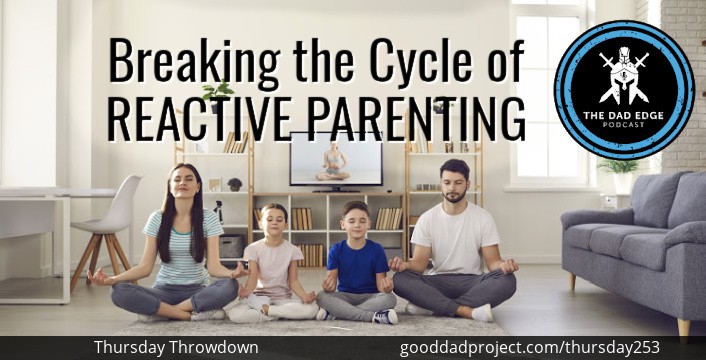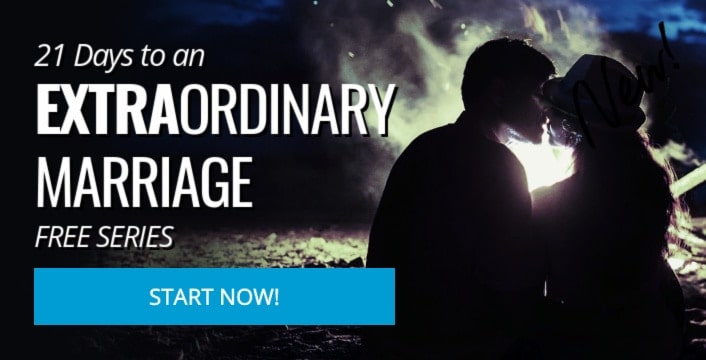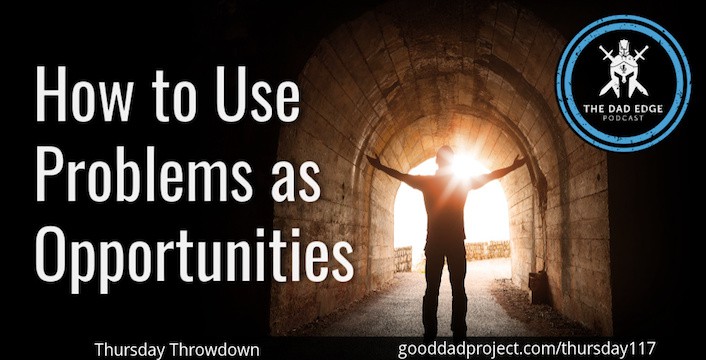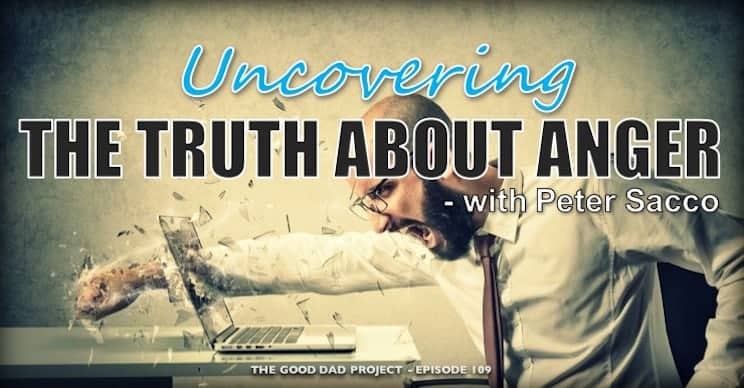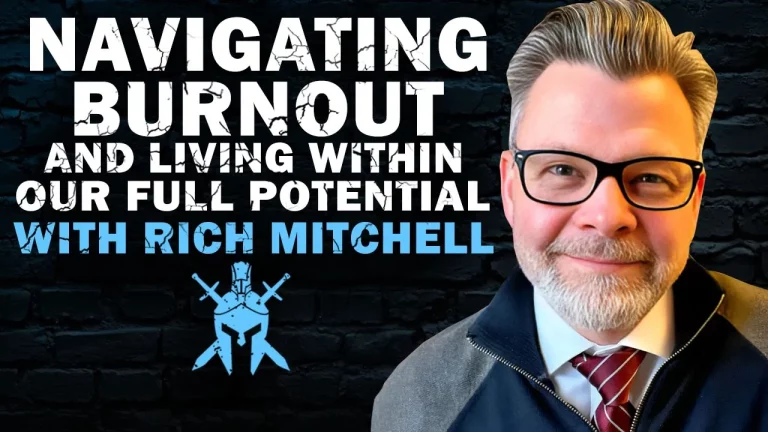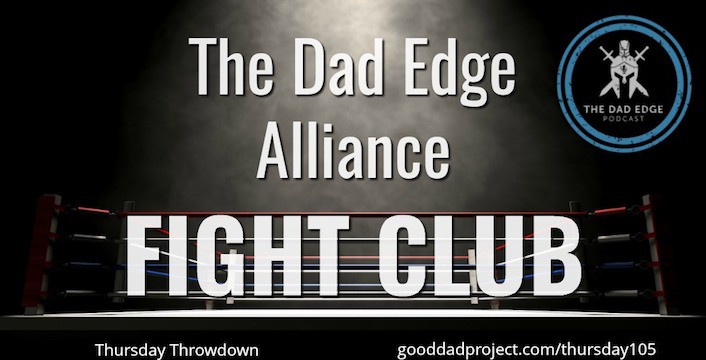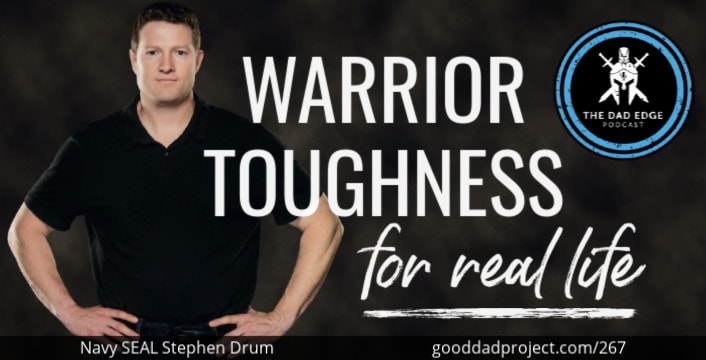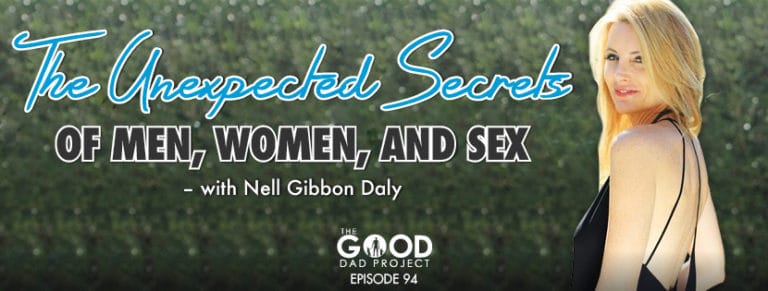Breaking the Cycle of Reactive Parenting
In this episode of the Dad Edge Podcast, we have invited Hunter Clarke-Fields, a mindfulness mama mentor. She coaches smart, accomplished, overstressed individuals on how to cultivate mindfulness in their daily lives.
Hunter has over 20 years of experience in yoga, mindfulness practices and a certified teacher of parent effectiveness training. She has taught mindfulness to thousands of parents worldwide. She is also an international speaker and an author as well.
Today, she talks with us about the meaning of being a mindful father and breaking the cycle of reactive parenting.


What You’ll Learn
Dads’ Achilles Heel
[1:31]
Patience is the Achilles heel for men. Most of us don’t realize that patience and mindfulness are skills and not something we’re supposed to feel. Our feelings will trick us where we think that we have to have the feeling of patience, but it’s actually a skill that we can strengthen.
Action Review
[4:24]
We are all human, and we are going to mess up eventually. It’s not always perfect. You’re not going to take the magic pill and suddenly have the patience of Yoda in every situation. You’re going to make mistakes from time to time. But you can identify exactly where the mess was and how to avoid it in the future. It takes practice and trusting the process.
An Intense Father
[7:45]
Hunter was a highly-sensitive kid. Growing up, she had a lot of freedom and independence, but her father had a bad temper, which was intense. That is the last thing that Hunter wants to give to her children. In her childhood, her father wasn’t taught the parenting skills, and Hunter would cower behind her bedroom door, scared.
[8:44]
Hunter and her father now have a great relationship. Her father is very encouraging and loving in a lot of ways. Still, there was his temper side, which damaged their relationship for a long time. They were able to heal their relationship in Hunter’s late 20s. But the style of discipline that her father used was really damaging to their relationship
[10:01]
Hunter’s father is a challenging man. He suffered enormously, which is connected to the patterns that go back generations. He was an artistic kid and had dyslexia. Her grandfather would beat him with a belt because he couldn’t do well in his math problems, so he had a lot of suffering that he passed on to Hunter.
[11:17]
For Hunter, his father did the best with what he had in raising her. She sees that patterns from generations come through, and she doesn’t want to hit her children. She wants to have a great relationship with them, which is the driver of her work.
The Wounded Healer
[13:40]
Hunter’s experiences motivated her to step into something that she wanted to create that would be a better experience for her daughters and herself as a parent and her journey of satisfaction with parenting them.
Embedded in our DNA
[14:21]
We have this great belief in our decision-making abilities. There are habits, patterns, causes, and conditions for the different life habits beyond our control. The most evolved part of our system when we’re born is that we can detect a threat. That system is one of the only parts that are completely fully developed at birth. We’re born with these causes and conditions that have little to do with what we decide. We can shift and change those patterns, which are already in us. We do this thing because we think that it’s all something that we decide, and we start to blame and shame ourselves for all of these things
[16:20]
No one decides to be impatient and to lose their temper. It’s is part of the legacy that we are given. This is part of the nervous system that we have. It’s our biology to have a threat response. To blame ourselves isn’t helpful. It doesn’t help us grow and change and do better. But it’s also not true because it’s not a choice that you made.
The Ability to Learn
[18:40]
Anyone can learn new skills, new tactics, new techniques, and new things to improve their reactivity and response. We can respond in a moment versus react. It’s the story that we actually tell ourselves that even keeps us from even being open to the fact that we can learn something new.
[19:49]
It’s important to accept the full range of our emotional experiences. We all have the seeds of anger within us. We may have even seeds of more anger and aggression because we have more angry and aggressive ancestors. But we have neuroplasticity where our brains are constantly growing and learning and changing in response to whatever we’re practicing, and what you’re practicing grows stronger.
[21:36]
With time and practice, we grow deeper grooves in the brain, and we can literally change the brain. We’re always growing and learning and changing. Don’t tell yourself that you are this way because what you practice grows stronger, and you can start to shift and change those patterns.
The Judgemental Culture
[24:52]
We live in a very judgmental culture. The whole story of original badness versus original goodness is not a helpful story. We have this idea that being harsh and mean and judgy to ourselves is helpful. But it actually makes you less likely to grow and change.
Self-Compassion
[25:50]
Self-compassionate people are actually much better at building habits and making changes. You’re human, and you’re going to make mistakes. Inevitably, we’re all going to make mistakes. If we answer ourselves with a harsh and damning voice internally, we won’t reach out, make mistakes again, and try new things again. If you give yourself that soft landing and give yourself some kindness when you make a mistake, it makes sense that you’re able to step outside your comfort zone again because you’re inevitably going to make more mistakes as you grow and learn.
Going through the Emotions
[28:42]
When you’re supercharged and in a really difficult place where you’re sad, upset, angry, or disappointed in yourself, Hunter teaches how to walk through feeling those feelings.
[29:17]
At that moment, you need to soothe yourself. Go for a walk, listen to music, or just do some stuff to take you away a little bit until you’re ready and calmed down enough to face something.
Practicing the Muscles
[31:34]
Those difficult moments with our kids are equivalent to the big game. We wouldn’t put our kids in the Little League World Series without having them go to some practices, learn the skills, and get that muscle memory of practicing that skill. We don’t have the muscles that we don’t practice. We can’t expect ourselves to go into a situation and be calm and nonreactive if we haven’t practiced.
[32:28]
Johns Hopkins had 47 different studies, a meta-study of studies that show that mindfulness meditation lowers anxiety, lowers depression, helps us sleep better, has better health outcomes, and, more importantly, for parents, really increases our impulse control.
[34:19]
We want to understand that our nervous system is perceiving our child as a threat. Our nervous system is preparing us for action. The body’s leading, and we got the whole mind and the body there together. We can do a couple things at that moment, using the mind and using the body to calm our stress response.
Releasing the Energy
[37:11]
That threat response is building up energy in your body. There’s blood flowing to your muscles, they’re getting tense and getting tighter, so there’s an energy in your body, and you have to release that energy so you can literally shake it out.
[47:47]
Identifying the emotion and saying it out loud and not putting the blame on kids or your spouse takes the power of the emotion away. It’s a way of taking responsibility because your kid or spouse didn’t make you feel that way. Our emotions arise through many causes and conditions, and some have to do with ourselves.
[42:39]
Your emotions have a lot of different causes and conditions. It’s just about owning them. When we say them out loud, we make ourselves more aware of what’s going on with us. It’s like this beautiful thing because it’s also modeling emotional intelligence. When we say those things out loud, our kids learn how to take care of their feelings because they’re just learning from us
[43:51]
It’s no true that there is something wrong with having these feelings and that shameful to have. We need to just own it, and then we can come back to a more peaceful state more easily.
Accepting our Feelings
[46:17]
When we ignore our feelings and try to push them away, it just gets worse. When we walk with our shadow behind us, with the difficult things that we don’t want to look at behind us, that shadow becomes big and scary. But when we walk with our shadow in front of us, we can see and deal with it. It’s just our shadow. It’s part of our existence, and we have unpleasant feelings. It’s part of life. When we can acknowledge them, it can flow on by a little bit more easily instead of getting bottled up.
Hunter Clarke-Fields’ Links
Facebook: https://www.facebook.com/huntercyoga/
Instagram: https://www.instagram.com/mindfulmamamentor/
Youtube: https://www.youtube.com/user/huntercyoga
LinkedIn: https://www.linkedin.com/in/hunter-clarke-fields-7b336b91
Mindful Mama Podcast: https://www.mindfulmamamentor.com/blog/Resources/podcast/
Leave an iTunes review.
Get a FREE book!
If you’re enjoying the show, leave us an itunes review. If your review is chosen as the iTunes Review-of-the Week, we’ll send you the free book of your choice!
What to do: send an email to support@thedadedge.com notifying us about your review, your mailing address, and your choice of a guest book from our Books Page!
Thanks for the support!
CLICK HERE TO LEAVE YOUR REVIEW.
Resources
Fill out an application for The Dad Edge Alliance
The Dad’s Edge AUDIOBOOK on iTunes or Audible
GRAB A COPY OF THE DAD’S EDGE BOOKHERE
Join our Dad Edge Group on Facebook
We have Dad Edge T-Shirts! Grab one HERE
FREE chapter from THE DAD’S EDGE on UNLIMITED PATIENCE
FREE EMAIL SERIES: CONNECTION WITH YOUR SPOUSE
FREE EBOOK: CONNECTION WITH YOUR KIDS
Our biggest regrets in life happen
when we’ve lost our patience.

Stop Reacting and Start Living
Do the work. Make a plan. Follow along with simple, yet powerful exercises and tap into the patience that is within you.
Get the Patience eCourse Plus 1 FREE Month in the Dad Edge Alliance
Create an action plan to help you thrive in life and build the legacy you want.
CLICK HERE TO LEARN MORE
Follow The Dad Edge
Don’t settle for a mediocre life.
Join over 531 men becoming their best selves
in The Dad Edge Alliance.
What did you think of the show?
What was your biggest take away?
Tag us when you share on social media!
#TheDadEdge
Twitter @gooddadprojct
Instagram @thedadedge
